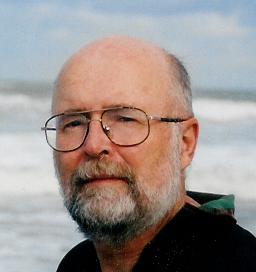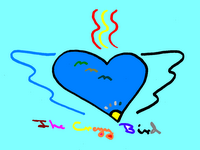I had not planned it -- there really isn't very much that I plan and the little I do plan seldom works out like I figured it would -- I had not planned it, but I note this final and concluding entry in the Arrogant Prophecies is being posted on the eve of the anniversary of Terrible Tuesday.
It may be fitting or not that it is so, but I give you, straight from the heart of the unknown poet to you, my friends, a "Few words on hope":
Spudmas is the story and legend of how hope is born, bringing light to the darkest hour. More specifically, in the religion of the Peelers, it celebrates the sprouting of the Idaho, and, if you believe the calendar (which you ought not) it has been celebrated more than two thousand times.
According to some guy who lucked out and got a couple of his letters canonised, his belief in the Idaho rested on "hope, faith and love" but that, "...of these three, love is the greatest!" Since it is in the Book of the Idaho [1 Cornythings 13:13], most people will turn off their Spud-given brains, nod their heads, mumble, "How True! How True!" and go back to snoring.
I disagree.
I say that hope is the greatest. The essence of the ugly evil is to destroy hope. Furthermore, my reasoning is that, although hope , at first glance, may well seem to be the least of the three, it is the linchpin which holds the three together.
When, hope is gone, faith must fade. When hope is gone and faith has faded, love herself will surely die.
When hope is gone, there can only be despair, for "Despair all ye who enter here", is what is written in twisted iron letters capped with razor wire above the spiked gates of hell.
Faith-shattered can be restored. Love-betrayed can be reborn. But, when hope is gone, there is nothing – nothing at all…
Therefore, hope against hope even when there should be no room for hope at all.
________________________
A good friend of mine told me a story about a man, deathly ill, who maintained that he was going to survive through his prayer to Spud. He did live a year longer, in suffering, for himself, as well as his family. "What kind of hope is that?" asked my friend.
My answer is that it was perhaps not hope that was feeding his faith – it was a form of despair as pernicious as the cancer which ate away his brain. Faith which cannot accept that we must die and that our ultimate fate must rest in the Eternal is not "faith" – it is a desperate attempt to coerce Spud and has its roots in despair – not hope!
Subscribe to:
Post Comments (Atom)




No comments:
Post a Comment